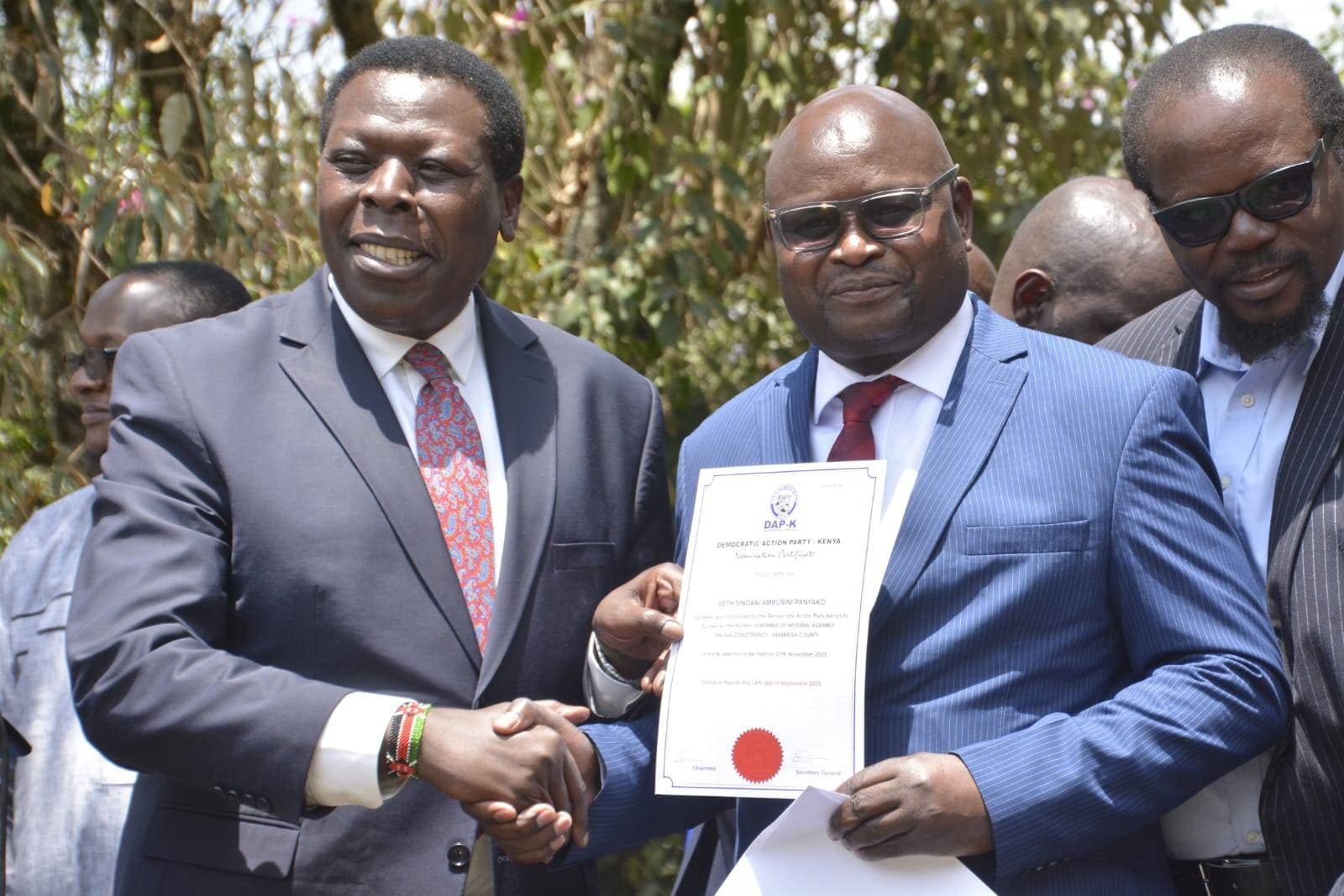We're loading the full news article for you. This includes the article content, images, author information, and related articles.
The Malava parliamentary by-election has transformed into a national political battleground, testing the unity of a new opposition alliance against the ruling UDA party's influence in Western Kenya ahead of the 2027 general election.

A coalition of opposition parties has formally endorsed Seth Panyako, the Democratic Action Party of Kenya (DAP-K) candidate and current Secretary-General of the Kenya National Union of Nurses (KNUN), for the Malava constituency by-election scheduled for Thursday, November 27, 2025, EAT. This move sets the stage for a direct political confrontation with the ruling United Democratic Alliance (UDA), which is fielding David Ndakwa. The by-election, triggered by the death of Member of Parliament Malulu Injendi in February 2025, is widely viewed as a critical test of political strength in the Western Kenya region.
In a significant display of unity, the "United Opposition" alliance announced on Monday, November 3, 2025, that it would field a single candidate to avoid splitting the vote. This strategy led to Edgar Busiega of the Democracy for Citizens Party (DCP) stepping down to support Panyako. The decision was based on internal polling that suggested Panyako was the stronger candidate to challenge the government's nominee, according to DCP Deputy Party Leader Cleophas Malala.
Panyako's campaign has attracted a roster of influential political figures from the region. DAP-K party leader Eugene Wamalwa has been a central figure in the campaign, framing the election as a litmus test for the 2027 general polls. He is joined by Trans Nzoia Governor George Natembeya, former Lugari MP Cyrus Jirongo, and Mumias East MP Peter Salasya, who have all publicly backed Panyako. On Sunday, November 2, 2025, Brian Lishenga, who chairs the Rural Urban Private Hospitals Association (RUPHA) and was a Kakamega senatorial candidate in 2022, also endorsed Panyako, highlighting the need for healthcare professionals in parliament.
The race is not just a local affair but a measure of political alignments in Western Kenya, a region undergoing a political realignment. The united opposition's strategy aims to consolidate the Luhya vote and present a formidable challenge to President William Ruto's UDA party. Panyako, who previously contested the seat on a UDA ticket in 2022 and narrowly lost to the late Injendi, has since positioned himself as a critic of government economic policies. His campaign focuses on the rising cost of living and what he terms as reclaiming the community's dignity.
The ruling UDA party is mounting a robust campaign for its candidate, David Ndakwa, a former Leader of the Minority in the Kakamega County Assembly. The government's efforts are being spearheaded by high-profile figures, including Prime Cabinet Secretary Musalia Mudavadi, National Assembly Speaker Moses Wetang'ula, and presidential aide Farouk Kibet, who have been actively campaigning in the constituency. President Ruto himself began a four-day tour of Western Kenya on October 30, 2025, during which he was expected to endorse Ndakwa, signaling the national importance of the seat to the ruling coalition.
Panyako's journey to the ballot has not been without challenges. His eligibility was contested in a petition filed in September 2025, which claimed he had not resigned from his position as a board member of the Local Authorities Provident Fund (LAPFUND) within the legally required timeframe after the parliamentary vacancy was declared by the IEBC on August 8, 2025. Despite these claims, the Independent Electoral and Boundaries Commission (IEBC) cleared Panyako to contest on Wednesday, October 8, 2025, allowing him to proceed with his campaign.
With both sides mobilizing significant political capital, the Malava by-election is shaping up to be more than a contest for a single parliamentary seat. It represents a broader struggle for political dominance and a crucial indicator of the shifting allegiances in one of Kenya's key electoral blocs.
Keep the conversation in one place—threads here stay linked to the story and in the forums.
Sign in to start a discussion
Start a conversation about this story and keep it linked here.
Other hot threads
E-sports and Gaming Community in Kenya
Active 9 months ago
The Role of Technology in Modern Agriculture (AgriTech)
Active 9 months ago
Popular Recreational Activities Across Counties
Active 9 months ago
Investing in Youth Sports Development Programs
Active 9 months ago
Key figures and persons of interest featured in this article